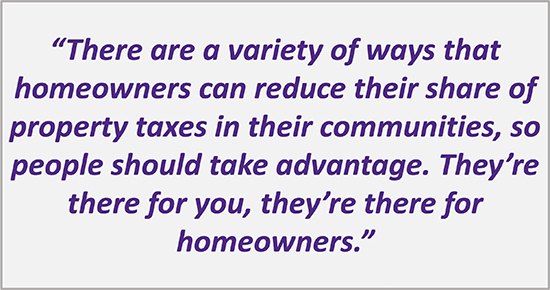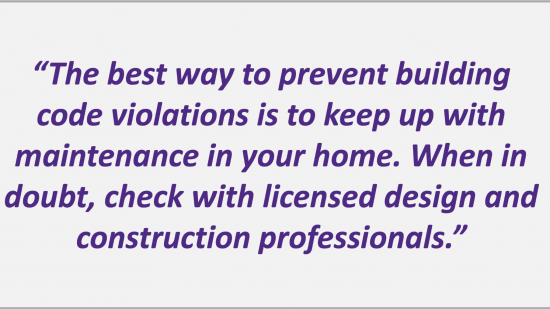Homeownership is a powerful way to provide for the health, safety, and financial security of you and your loved ones. However, owning a home does carry with it important financial and legal obligations. Homeowners must be aware of these obligations in order to protect their most valuable assets and ensure their continued ownership of the property.
In this module, you will learn:
- A homeowner’s basic legal and financial obligations, such as a mortgages, title, property taxes, and types of property ownership;
- The role of the Cook County Assessor’s Office in supporting homeowners; and
- Common types of building code violations, how to avoid building code violations, and resources available to homeowners to help resolve building code violations.
You can download a document summarizing the key takeaways from this module here: Module 2_Reverse Mortgage Fraud_Key Takeaways
Interview: Professor Peter DiCola, Northwestern Pritzker School of Law
Peter DiCola uses empirical methods and applied economic models to study intellectual property law, media regulation, and their intersection. He received his JD and his PhD in economics from the University of Michigan. His current research focuses on copyright law’s regime for digital sampling and deregulation in the radio industry.
Key Takeaways
- When seeking information about a mortgage, it’s important that homeowners talk to an expert that they trust, such as a mortgage broker or lawyer.
- If a homeowner has “title” to a home, it means that they have the rights, privileges, and obligations that come with being the owner. Homeowners can look up the title record for their home through an online government registry called a “title registry” managed by the county.
- When working with a mortgage broker, a lawyer, or a government official, it’s important that homeowners ask questions so that they understand all of the benefits and consequences of their decisions regarding their home.

Interview: Fritz Kaegi, Cook County Assessor
Fritz Kaegi is the Cook County Assessor. Fritz was born and raised in the Hyde Park neighborhood in Chicago and still maintains close ties to the community. He attended Hyde Park’s Kenwood Academy for high school, completed his undergraduate studies at Haverford College, and received his MBA from Stanford University.
Key Takeaways
- The Assessor is one part of the property tax system in the state of Illinois, and is responsible for determining the value of a home and the amount of property tax the homeowner is required to pay.
- Every three years, the Assessor’s Office will issue a reassessment notice stating the assessed value of your home. It is important that homeowners review this assessment to make sure that the assessed value corresponds with the homeowner’s expectation of the value of their property and that they are paying an appropriate amount in property tax.
- The Assessor’s Office has a variety of exemptions available to homeowners to reduce their share of property taxes, such as the Homeowner’s Exemption and the Senior Homestead Exemption. Information about these exemptions can be found online at the Cook County Assessor’s website (Cookcountyassessor.com).

Interview: Professor Ann Lui, University of Michigan
Ann Lui, is a registered architect and founding principal of Future Firm, a Chicago-based architecture and design research practice. Currently, Lui also organizes The Night Gallery, a nocturnal exhibition space on Chicago’s south side, which features video and film works by artists and architects from sunset to sunrise. She holds an SMArchS in History, Theory, and Criticism of Architecture and Art from MIT and a B.Arch from Cornell University.
Key Takeaways
- A building code is a set of rules that govern buildings and other structures designed to protect the health, safety, and welfare of residents. In Chicago, the building code is part of the Municipal Code of Chicago, and is overseen by the city of Chicago’s Department of Buildings.
- The best way to prevent building code violations is to keep up with maintenance on your home. Depending on the severity of the violation, homeowners can: (1) repair the home themselves; (2) hire a licensed contractor; or (3) for extensive repairs, work with a licensed architect. Homeowners should only work with architects and general contractors who are licensed and vetted.
- Resources are available for homeowners who need assistance paying for home maintenance. For example, the Chicago Department of Buildings has a program called the Homeowner’s Assistance Program, while the Neighborhood Housing Services, a nonprofit organization, supports homeowners through construction services and low interest repair homes.

Additional Resources
- Consumer Financial Protection Bureau: Mortgage Resources
- Cook County Clerk: How to Check Your Deed
- Illinois State Bar Association: Your Guide to Buying a Home
- Cook County Assessor: A Guide to Property Tax Savings
- Cook County Assessor: How to Apply for Missing Property Tax Exemptions
- AIA: You and Your Architect
- Neighborhood Housing Services of Chicago, Inc.: Reducing Housing Costs – Homeowner’s Toolkit
- Chicago Department of Buildings: Guide to Permits
- NAPSA: Elder Financial Exploitation



